 Petzlover
Petzlover Cao da Serra de Aires is originated from Portugal but Istarski Ostrodlaki Gonic is originated from Croatia. Both Cao da Serra de Aires and Istarski Ostrodlaki Gonic are having almost same height. Both Cao da Serra de Aires and Istarski Ostrodlaki Gonic are of same weight. Both Cao da Serra de Aires and Istarski Ostrodlaki Gonic has almost same life span. Cao da Serra de Aires may have less litter size than Istarski Ostrodlaki Gonic. Cao da Serra de Aires requires Moderate Maintenance. But Istarski Ostrodlaki Gonic requires Low Maintenance
Cao da Serra de Aires is originated from Portugal but Istarski Ostrodlaki Gonic is originated from Croatia. Both Cao da Serra de Aires and Istarski Ostrodlaki Gonic are having almost same height. Both Cao da Serra de Aires and Istarski Ostrodlaki Gonic are of same weight. Both Cao da Serra de Aires and Istarski Ostrodlaki Gonic has almost same life span. Cao da Serra de Aires may have less litter size than Istarski Ostrodlaki Gonic. Cao da Serra de Aires requires Moderate Maintenance. But Istarski Ostrodlaki Gonic requires Low Maintenance
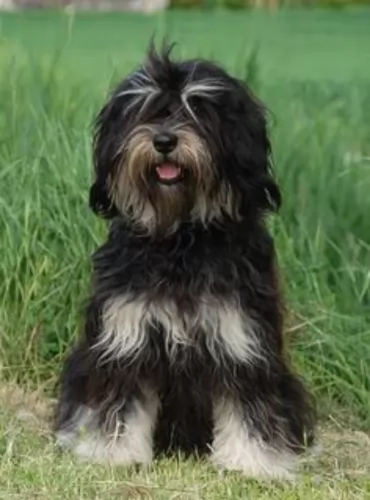 Ancestors of the Cao da Sera de Aires were used for herding livestock in the Serra de Aires and Alentejo, Portugal. This herding dog is native to Portugal and throughout the 20th Century he was kept as a working dog.
Ancestors of the Cao da Sera de Aires were used for herding livestock in the Serra de Aires and Alentejo, Portugal. This herding dog is native to Portugal and throughout the 20th Century he was kept as a working dog.
Known also as the Portuguese Sheepdog, Portuguese Shepherd Dog or Serra de Aires Mountain Dog, there are some questions surrounding the breed's ancestry as there are few records of dogs before 1900. The dog is thought to be related to the Pyrenean and Catalan Sheepdogs and that it has descended from Briards which were imported into Portugal and crossed with the Pyrenean Sheepdog.
The Cão da Serra de Aires breed standard was accepted by the Portuguese Kennel Club, and the breed was recognized internationally in 1996. The dog was also recognized by the United Kennel Club in the Herding Group in 2006.
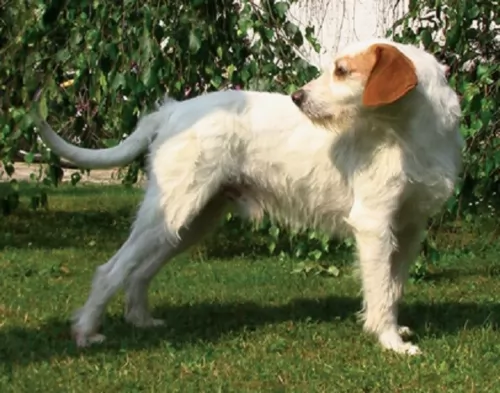 The Istarski Ostrodlaki Gonic, also referred to as the Istrian wire-haired or short-haired scenthound is a very ancient dog breed. Apparently the dog has been found in paintings that go way back to the early 1700s.
The Istarski Ostrodlaki Gonic, also referred to as the Istrian wire-haired or short-haired scenthound is a very ancient dog breed. Apparently the dog has been found in paintings that go way back to the early 1700s.
The dog can either have a short, smooth coat or a rough, wiry longer coat. He has always been popular with hunters, used for hunting rabbits and fox.
An interesting fact with this dog is the correlation between the Dalmatian dog and the Istrian short-haired hound. According to veterinary investigations, there are strong likenesses between the two breeds.
The truth is, the origin of the Istrian has been a matter of dispute for some time but in 2003 the Federation Cynologique Internationale recognized the breed as hailing from Croatia.
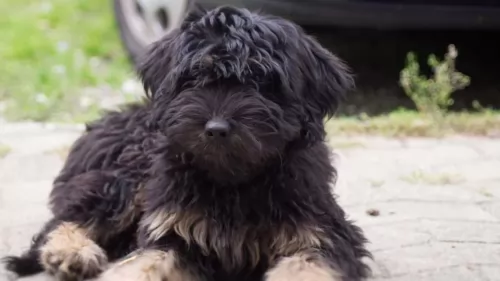 The beautiful Cão da Serra de Aires is a medium-sized dog. He stands at 45 to 55 cm at the withers and weighs about 17 to 27 kg. He is recognizable by the long, shaggy, single-layer coat, of straight or slightly wavy hair. Don’t be deceived by the coat as below, the dog has a muscular, athletic body.
The beautiful Cão da Serra de Aires is a medium-sized dog. He stands at 45 to 55 cm at the withers and weighs about 17 to 27 kg. He is recognizable by the long, shaggy, single-layer coat, of straight or slightly wavy hair. Don’t be deceived by the coat as below, the dog has a muscular, athletic body.
The coat comes in different shades such as fawn, gray, yellow and black. The dog has a long tail which is held straight out or down and he has medium-length, floppy ears. You’ve got to look hard, as the facial features of the dog are hidden by its shaggy coat. He has a lot of facial hair that sometimes you have to wonder if he can see out of his eyes.
The Cao da Serra de Aires is a wonderful canine companion and is devoted and loyal, forming strong bonds with their human family. He is a playful, amicable dog and gets on well with children in the home as well as with other pets.
He is intelligent and trainable, and when properly trained and socialized,he becomes an even nicer pet to have around and is obedient to his master’s voice. He is territorial, strong willed and dominant and makes a good watchdog too.
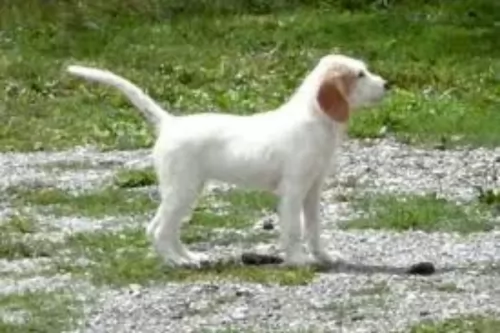 Medium in size, the Istarski Ostrodlaki Gonic stands at roughly 43 to 60cm at the withers and weighs roughly 12 to 27kg. The chest of the dog is broad and deep, the skull slightly rounded while the muzzle is strong and rectangular shaped. The nose is dark brown or black.
Medium in size, the Istarski Ostrodlaki Gonic stands at roughly 43 to 60cm at the withers and weighs roughly 12 to 27kg. The chest of the dog is broad and deep, the skull slightly rounded while the muzzle is strong and rectangular shaped. The nose is dark brown or black.
The ears are floppy and are nearly always in the orange color while the tail is long and is carried low. The coat of the rough haired dog is of medium length. In fact the coat can either be short and smooth or longish and wiry with a woolly undercoat. The color of the coat is white with orange markings.
This breed of dog is sought after for his cheerful personality. He is loyal to his human family and is a social dog, loving to spend time around his family.
He is energetic, confident and strong-willed and this is why, as with most other dogs, he will benefit from training and socialization, as this makes him obedient and responsive to his owner. He is evenly tempered, being gentle and docile.
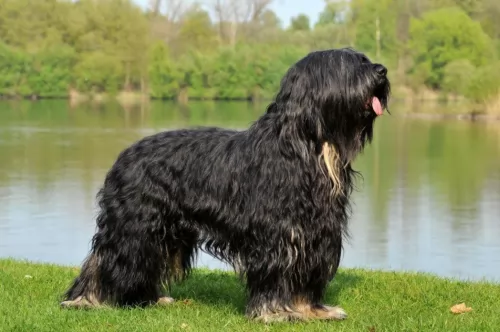 The Cão da Serra de Aires is such a loyal dog to his human family that he makes a splendid pet. He is active, having worked historically at herding and guarding.
The Cão da Serra de Aires is such a loyal dog to his human family that he makes a splendid pet. He is active, having worked historically at herding and guarding.
Socialization and obedience training ensure that he becomes an exceptional pet and he has a host of positive attributes to his name – he is intelligent, energetic, loyal and loving. He may have been used long ago to guard livestock, but today he is selected as a pet specifically for his excellent companionship and for his protective nature.
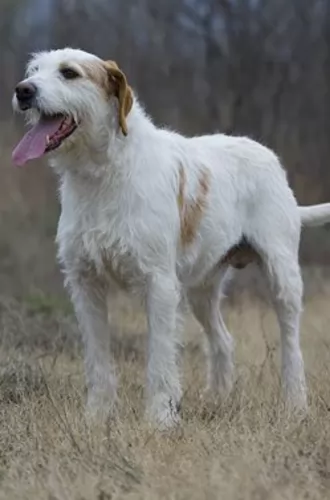 The Istrian Wire-haired Scenthound or Istarski Ostrodlaki Gonic as he is also referred to is a strong, well built hound which is elegant in appearance.
The Istrian Wire-haired Scenthound or Istarski Ostrodlaki Gonic as he is also referred to is a strong, well built hound which is elegant in appearance.
He has a remarkably striking coat - bright white with orange markings. He has always been an excellent hunting dog, even to this day. This background hunting of his will require that he receives ongoing exercise as well as mental stimulation.
Treat this beautiful dog well - exercise him, groom him, feed him well and love him and you will be rewarded with the loyal and devoted friendship of an amazing dog.
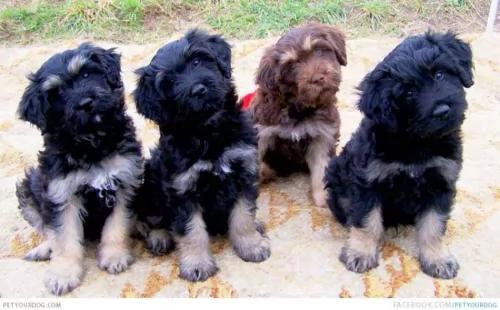 As with most dogs that are looked after well, their health can be good. The Cao da Serra de Aires isn’t likely to keep you at the vet often. Just like with any good dog, there are some health disorders that can benefit you to know about.
As with most dogs that are looked after well, their health can be good. The Cao da Serra de Aires isn’t likely to keep you at the vet often. Just like with any good dog, there are some health disorders that can benefit you to know about.
Being forewarned , you can get your pet to the vet quickly before the illness gets out of hand.
There are some pet owners who want to have their pets tested by the Orthopedic Foundation for Animals as well as the Canine Eye Registration Foundation to rule out health defects such as hip dysplasia and cataracts before they manifest themselves in their pets. This is of particular importance to breeders so as to prevent the parent dogs passing bad genetic conditions to the puppies.
This is a common skeletal disease where the dog’s hip joints don’t develop properly. It can be terribly painful for your pet to get around. It’s a genetic condition and while it is more prevalent in big dogs, any breeds are susceptible.
Your dog will battle along with painful joints and sometimes his hind-end will be lame. You’ll notice that once lying down, he battles to get up again. Fortunately vets are well acquainted with this ailment and they have different options to treat and manage it.
Cataracts in your dog come about from a disease process which affects the lens of the eye. The eye loses its transparency and impairs vision. There are some instances where cataracts can cause blindness. You’ll see a whitish gray area in your pets eye. The most common cause of cataracts is genetics. Get your pet to the vet who will do certain tests to evaluate the eyes and make a recommendation.
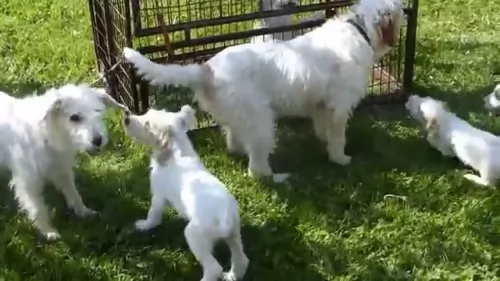 There are people who don’t take dental disease seriously in dogs as they think that it simply affects the teeth, when in fact dental disease can affect the dog’s entire body.
There are people who don’t take dental disease seriously in dogs as they think that it simply affects the teeth, when in fact dental disease can affect the dog’s entire body.
Dental- and gum disease is to be regarded with concern as it can be painful and even life threatening. It affects many dogs, and unfortunately your Istarski is also likely to have problems with his teeth. Tartar build-up and infection of the gums can lead to tooth loss but also damage to the kidneys, heart and joints.
Dogs need to have their teeth attended to regularly and if this is something new to you, speak to your vet and find out about special canine toothpaste and toothbrush and how to use them.
Dogs can be susceptible to bacterial and viral infections such as rabies, distemper and parvo, and that is why visits to your vet are so important. These life-threatening diseases for your Istarski Ostrodlaki Gonic are preventable through vaccinations.
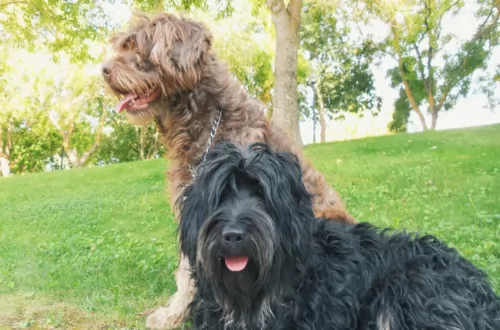 As a working dog used to long hours of action, the Cao da Serra de Aires will need lots of activity. He’ll need you taking him for long walks and playing ball games with him. He can become frustrated and destructive when left without any physical stimulation.
As a working dog used to long hours of action, the Cao da Serra de Aires will need lots of activity. He’ll need you taking him for long walks and playing ball games with him. He can become frustrated and destructive when left without any physical stimulation.
The Cao da Serra de Aires may have long hair but he isn’t high maintenance. He won’t require professional grooming, but will require a good brush a least twice a week. This is because the long coat can tangle.
To keep him looking his best, you’ll want to be trimming the hair around his paws. Another important grooming task is checking his ears and cleaning them. You have to be careful about cleaning your pet ears if you don’t know how, as it could damage the ears. Your vet can always advise you on how this is done.
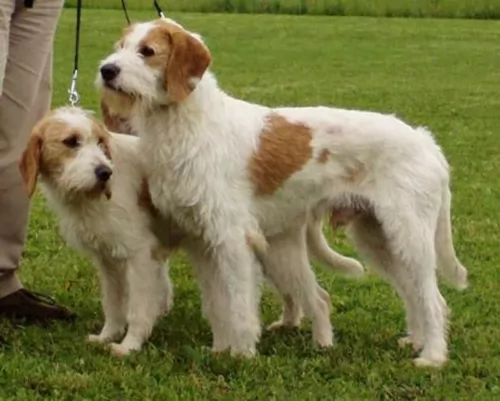 Taking care of an Istarski Ostrodlaki Gonic dog is much like caring for a child – doing everything you can to keep him healthy and happy, after all, he is a member of your family.
Taking care of an Istarski Ostrodlaki Gonic dog is much like caring for a child – doing everything you can to keep him healthy and happy, after all, he is a member of your family.
You want to be watching his diet and making sure that it is the best quality there is, full of vitamins and minerals to keep his eyes bright, his nose wet and his tail wagging.
There are excellent commercially manufactured dog foods on the market today and the best ones ensure excellent nutrition for your dog to keep him in optimal condition through each stage that he goes through. Try to include some home-made food into this kibble such as cooked chicken, brown rice and vegetables and it can be to his benefit to just to include some raw meat from time to time.
Make sure your Istarski Ostrodlaki Gonic is well exercised, that you check his teeth and ears to ensure there are no infections and to call the vet immediately you suspect something is wrong. Make sure you have him examined as a puppy and that he gets his necessary injections as there are diseases that can kill your dog.